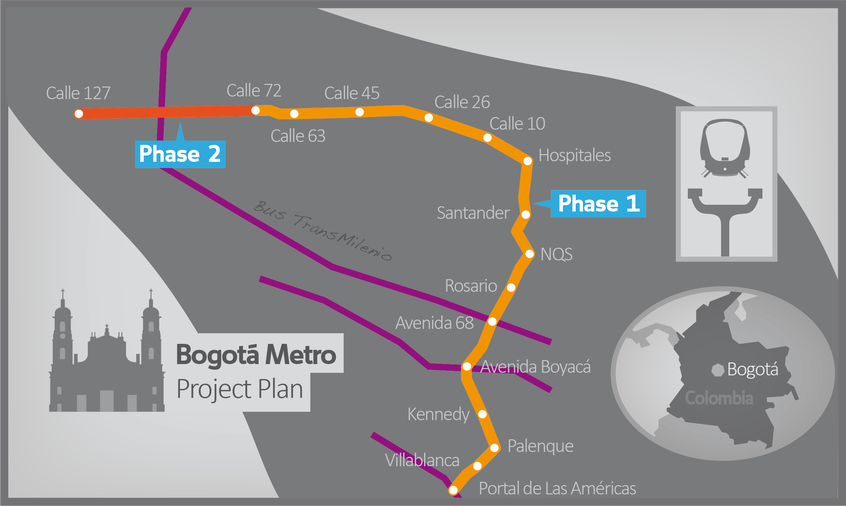A number of international development banks have agreed to provide funding for the development of a $4.3bn metro in the Colombian capital of Bogotá.
The World Bank is to provide $70m as a part of the $600m requested by the government of Colombia to build a viaduct and carry out technical studies for the project. The remaining $530m will be made available for future operations.
The Inter-American Development Bank and the European Investment Bank (EIB) have also agreed to finance the scheme.
The 24km first line of the metro will be built in the southwest of the city, on a raised track to withstand earthquakes. Its 23 trains will pass through 15 stations, and each will be able to carry 1,800 passengers.
The project is part of Bogotá’s 2016-19 Municipal Development Plan, which also includes linking the bus system to the metro and building 14km of cycle paths.

A map of the metro’s first line (Systra)
The EIB has made a $480m loan under its Climate Action and Environment Facility, which aims to reduce carbon emissions and pollution by promoting public transport.
Emma Navarro, EIB vice-president, said: “For the first time, the EU bank is financing a project in the public sector in Colombia, supporting a large-scale piece of infrastructure that will have major economic and social benefits for the people.”Â
Earlier this year, Colombian officials visited London looking for partners to build, operate and part-finance the metro; last year it was announced Systra would design it.
The metro is due to start running in 2026.Â
Top image: A bus in Bogotá (Wikimedia Commons/ Felipe Restrepo Acosta)






